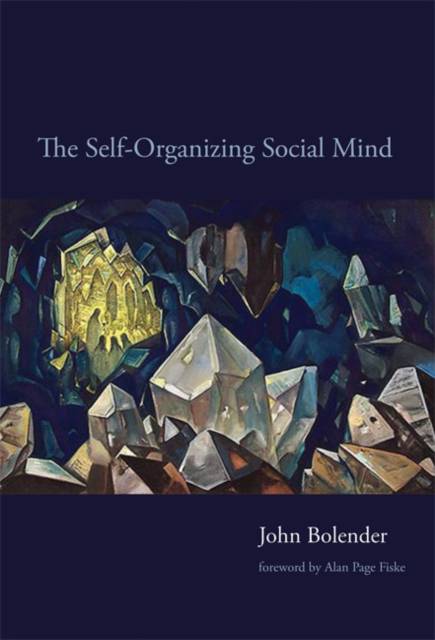
- Afhalen na 1 uur in een winkel met voorraad
- Gratis thuislevering in België vanaf € 30
- Ruim aanbod met 7 miljoen producten
- Afhalen na 1 uur in een winkel met voorraad
- Gratis thuislevering in België vanaf € 30
- Ruim aanbod met 7 miljoen producten
Omschrijving
A proposal that the basic mental models used to structure social interaction result from self-organization in brain activity.
In The Self-Organizing Social Mind, John Bolender proposes a new explanation for the forms of social relations. He argues that the core of social-relational cognition exhibits beauty--in the physicist's sense of the word, associated with symmetry. Bolender describes a fundamental set of patterns in interpersonal cognition, which account for the resulting structures of social life in terms of their symmetries and the breaking of those symmetries. He further describes the symmetries of the four fundamental social relations as ordered in a nested series akin to what one finds in the formation of a snowflake or spiral galaxy. Symmetry breaking organizes the neural activity generating the cognitive models that structure our social relationships.
Bolender's primary claim is that there exists a social pattern generator analogous to the central pattern generators associated with locomotion in many animal species. Spontaneous symmetry breaking structures the activity of the social pattern generator just as it does in central pattern generators.
Bolender's hypothesis that relational cognition results from self-organization is entirely novel, distinct from other theories that describe sociality in terms of evolution or environment. It presents a picture of social-relational cognition as resembling something inorganic. In doing so it reveals deep connections among cognition, biology, and the inorganic world. One can go too far, he acknowledges, in taking a solely dynamical view of the mind; the mind's innate functional complexity must be due to natural selection. But this does not mean that every simple mental feature is the result of natural selection. By noting a descending symmetry subgroup chain at the core of relational cognition, Bolender takes the first step in an important investigation.
Specificaties
Betrokkenen
- Auteur(s):
- Uitgeverij:
Inhoud
- Aantal bladzijden:
- 208
- Taal:
- Engels
- Reeks:
Eigenschappen
- Productcode (EAN):
- 9780262014441
- Verschijningsdatum:
- 13/08/2010
- Uitvoering:
- Hardcover
- Formaat:
- Genaaid
- Afmetingen:
- 161 mm x 233 mm
- Gewicht:
- 467 g

Alleen bij Standaard Boekhandel
Beoordelingen
We publiceren alleen reviews die voldoen aan de voorwaarden voor reviews. Bekijk onze voorwaarden voor reviews.











